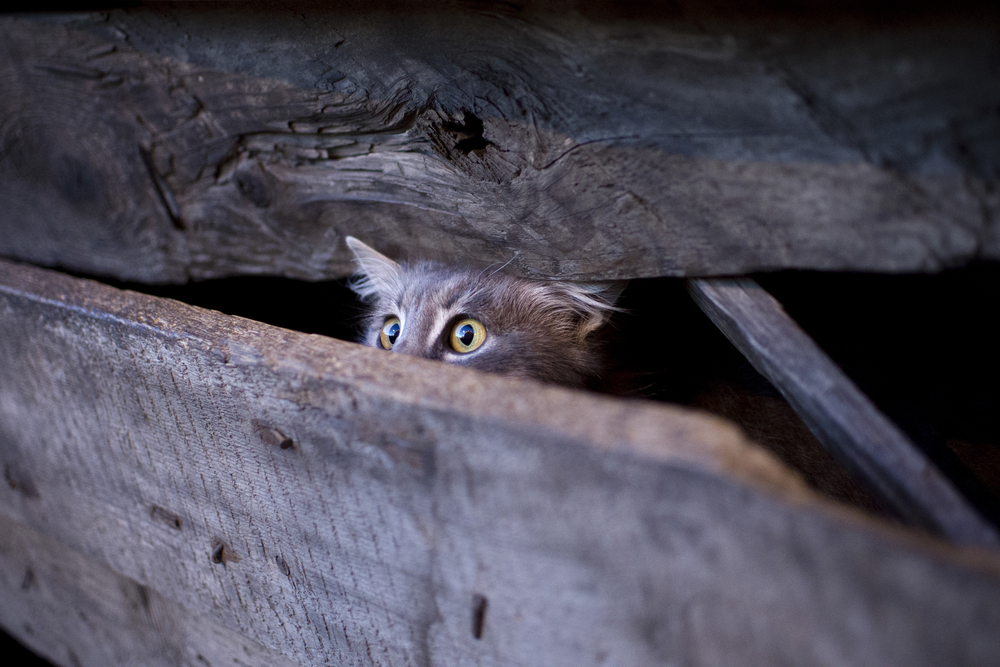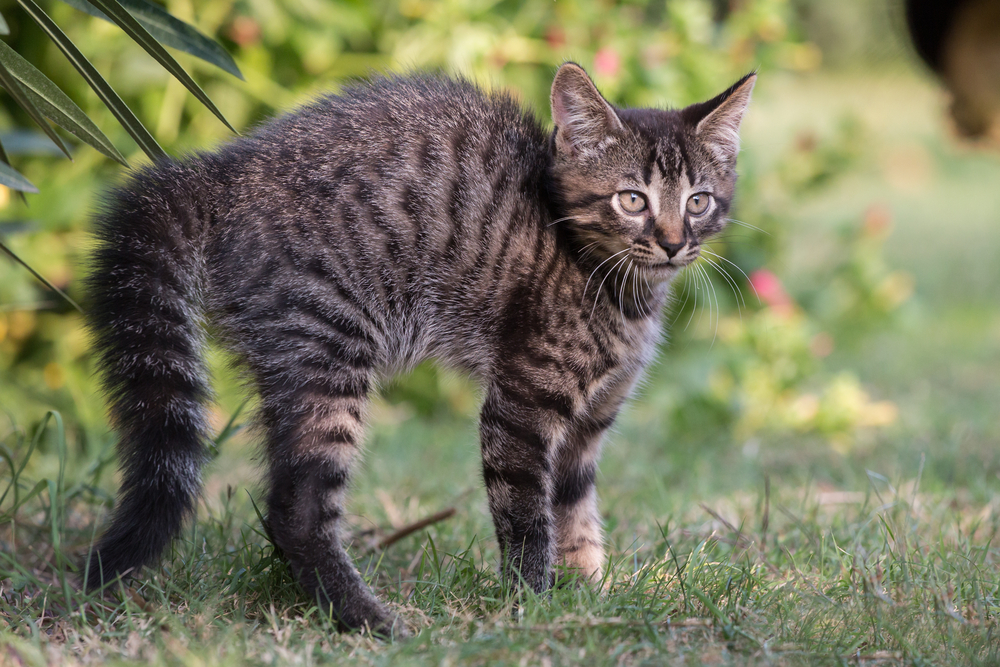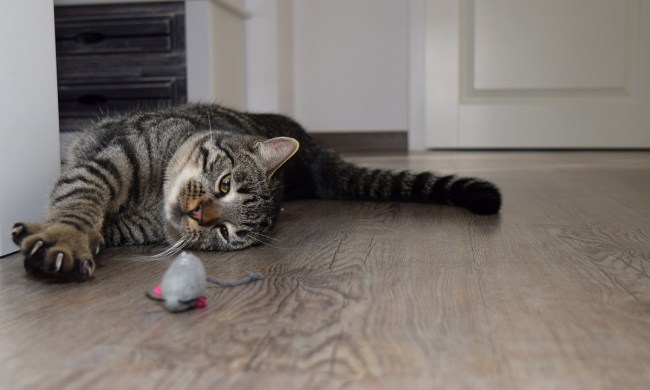It’s no secret that cats are incredibly independent creatures. As a result, it isn’t unusual to find them sleeping in obscure places throughout the house or squeezed into the smallest space imaginable just because they wanted to see if they would fit.
But when going their own way is actually a fearful reaction to a stimulus like a thunderstorm, it’s time to take action. And even though cats often don’t display fear like their canine counterparts do, it doesn’t make severe weather events any less frightening for some of them.
How can you keep your cat calm during a thunderstorm? Here are some different ways you can manage her anxiety.

How do you know when your cat is frightened?
The first step in keeping your cat calm during a thunderstorm is being able to recognize when she’s frightened in the first place.
If you’ve ever adopted a shelter cat, you know they often hide for the first few days before they feel comfortable in their new surroundings. Depending on her personality, your cat may also have demonstrated some aggressive behavior, such as hissing or spitting or freezing like a statue when she encountered something bewildering in the house during the first few days in her new home.
Much like humans, anxious or nervous cats may also bite their nails. If your cat continues biting her nails once she’s had a trim, it could be a nervous habit she’s developed in response to a stressful situation or environment.
Why are some cats afraid of thunderstorms?
In addition to new surroundings, other triggers such as unfamiliar people and animals, or loud noises, can frighten your cat. That includes the loud noises that occur during thunderstorms.
Beyond the booming thunderclaps, howling winds, and pounding rain we humans hear, animals can detect the atmospheric changes and electrical discharges these storms produce. These changes, which sometimes happen days before an actual storm materializes, affect the way odors and sound travel through the air. Because cats have heightened hearing and a sense of smell 14 times greater than humans’, they often get advance notice of impending weather.

Tips for keeping your cat calm during a thunderstorm
Not all cats are fearful of thunderstorms; however, if you suspect your cat has weather-related anxieties, talk to your veterinarian. She can help rule out any illnesses or other medical issues that may be causing your kitty’s distress.
Once your cat receives a clean bill of health, try some of these tips to help relax her the next time the weather turns rough:
- Designate a safe space in a room without windows, such as a basement, closet, or other windowless interior room, and make sure she has access to her litter box.
- Mask the sound of the storm with a white-noise machine or noise-cancellation app, especially if she isn’t calmed by being held or stroked.
- Invest in compression clothing designed to reduce stress in overly anxious dogs and cats. These wraps apply pressure to the torso to produce a calming effect, much like swaddling a baby. Although these garments don’t work with every animal, many pet owners swear by the results.
- Try natural supplements. Several supplements on the market claim to reduce feline anxiety, some by claiming to mimic a cat’s pheromones. Talk to your veterinarian about these supplements and, if they are a viable option, ask which brand she recommends.
- Stay calm. Cats are extremely perceptive. Not only can they sense an impending thunderstorm, but they can also sense when their favorite human is nervous or upset. Set the tone for the weather disturbance with a peaceful attitude, and your cat will be more likely to follow suit.
Finally, follow your cat’s lead. Some may want to hide; others may seek comfort by demanding your attention. Do your best to provide for her needs without encouraging behavior that might intensify her fear in the future.
We get it! As a responsible pet owner, it’s disconcerting to see your animal in distress, especially in situations like thunderstorms where there’s not much you can do to avoid the situation. Fortunately, by adopting a positive attitude, following advice from your veterinarian, and employing these tips, you can help your cat successfully navigate stressful situations.


